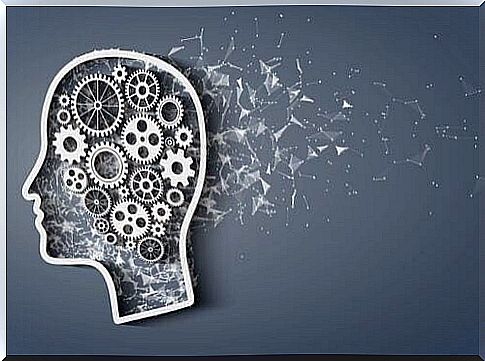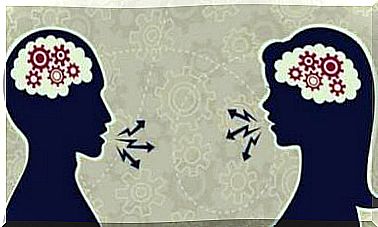Metacognition: Characteristics And Peculiarities

The term metacognition is complex. It can be summed up in the concept of knowledge about knowledge, i.e. the ability to know and regulate the way we think, which involves the conscious control of cognitive processes such as memory, attention and understanding.
The study of metacognition began with the epistemologist and cognitive psychologist J. Flavell and with the English anthropologist and psychologist Gregory Bateson. The latter concentrated his studies on metacognition applied to animals.
Metacognition brings that extra elasticity that characterizes the human mind. Consequently, one must know it as a second-degree knowledge, which has itself as its object. Hence the prefix “meta”. It allows us to evaluate executive processes and act accordingly in order to improve our actions.
An example of metacognition can be given by a reading we are doing; in verifying if we have understood what we have read we realize that it is not so and we reread it again. When solving a problem, we perceive that the mental strategy we were applying does not work and we opt for another.
The two faces of metacognition
To fully understand metacognition it is essential to be clear that it is a multi-faceted concept. We can talk about them from two different perspectives, although they are largely associated with each other. One from the point of view of its content, the other takes into account the process.
Consequently, we distinguish metacognition as a metacognitive knowledge and as a metacognitive control. Below we will describe each of the two perspectives.

Metacognitive knowledge
This term refers to our knowledge of our own and others’ cognitive processes. We speak, therefore, of the aspects of the content or of knowledge proper. It is declarative knowledge that we put into practice, for example, when we think about our intellectual, learning or memorization abilities.
This type of knowledge has the following characteristics:
- It is relatively stable as an intuitive model of knowledge and how it works.
- Verifiable and communicable, as accessible to reflect and to talk about it.
- Fallible, since incorrect reasoning and misconceptions can occur.
- From late development, it manifests itself in the last stages of development, as it requires a great capacity for abstraction.
Metacognitive knowledge is made up of 3 main characteristics:
- Personal variables: this is knowledge referred to ourselves, as thinkers and apprentices. That is to say, about our skills and experiences related to different tasks. For example, believing that you are more inclined to science subjects rather than languages, or to be better at remembering names than a friendly face.
- Variables with respect to the goal: they include the knowledge we have about our goals, as well as all those characteristics that affect the difficulties they present. For example, knowing that studying takes a lot more effort than reading a novel.
- Strategic variables: is the knowledge of the means that can be useful for carrying out the task. It involves understanding the declarative, procedural and conditional aspects of applicable strategies.
Metacognitive control
Metacognitive control refers to active supervision, as well as to the regulation and organization of the same in the light of the processes that intervene at a given moment . That is, the ability to pay attention to possible errors and act accordingly to limit them. It is important to point out that the metacognitive process is present before, during and after the achievement of the goal.
Metacognitive control has the following characteristics:
- It is not considered stable, as it is associated with cognitive activity and, therefore, it depends on the situation and the specific objective.
- It is relatively independent of age. Once the metacognitive processes have developed, age does not seem to be an influencing variable.
- It is a process largely structured in proceedings and is unconscious, so many of its aspects are inaccessible and not communicable.
The main features of metacognitive control are:
- Planning. Developing a strategic plan before starting a task. This implies the organization of resources and strategies to be used, taking into account the final objectives to be pursued.
- Supervision. It consists in the review and refinement of the actions during the performance of the task, in order to achieve a progressive approach to the objectives. This presupposes a double interactive process: a “bottom-up” reasoning, with the identification of errors; and a “bottom-up” reasoning, ie correcting errors.
- Assessment. This is the evaluation of the final results at the end of the task in relation to the objectives established upstream. This is in order to consider corrections and changes to the strategy for future tasks.

Final thoughts on metacognition
Metacognition is a fundamental aspect in information processing. In carrying out most of the actions we observe, in fact, that the metacognitive aspects are present and that they have a considerable weight ; both metacognitive knowledge and metacognitive control. And it must be understood that the difference between cognition and metacognition is a very fine line, which leads us to think of a dimensional aspect rather than impervious categories.
Studying metacognition helps us understand human thinking and reasoning, which is really important in a multitude of fields, such as clinic and education. Understanding how the human mind works helps us to improve all processes related to it.









